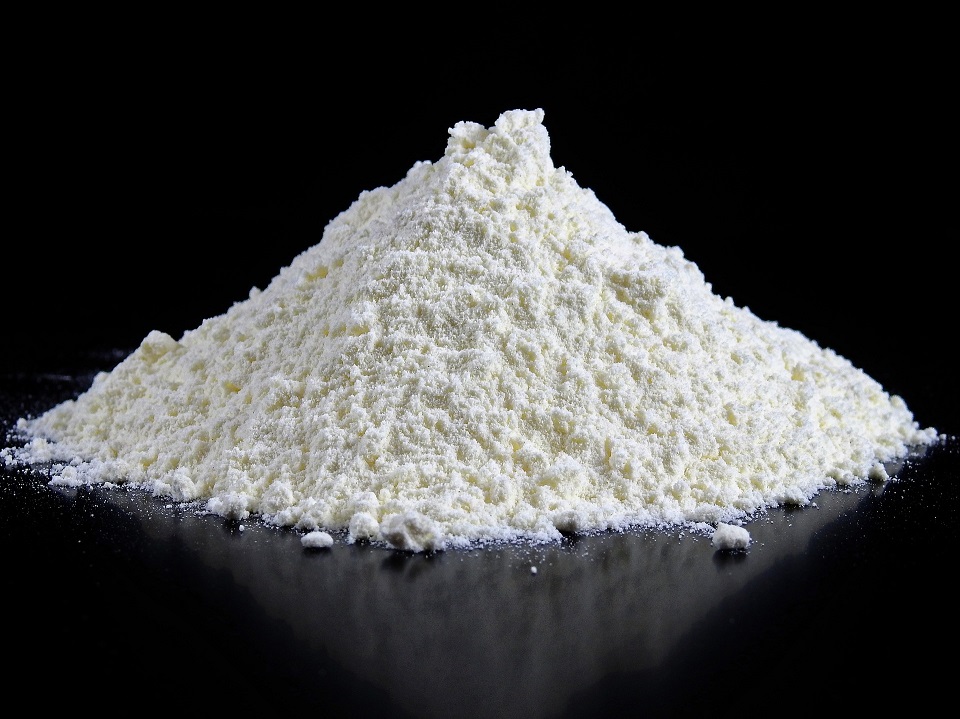Many dietary supplements include tricalcium phosphate, a calcium salt. Many people have concerns about tricalcium phosphate’s safety, including adverse effects and if it causes cancer.
If they don’t obtain enough calcium from their food alone, some people use tricalcium phosphate pills to boost their regular calcium consumption. Tricalcium phosphate, on the other hand, is a concentrated supply of calcium, and too much of it can result in high calcium levels or hypercalcemia.
High levels of calcium can cause:
- muscle pain
- weakness
- constipation
- nausea
- vomiting
- excessive urination
- stomach pain
Dehydration, fatigue, loss of appetite, thirst, and mental disorientation are all possible side effects. If a person does not take it appropriately, is taking certain drugs, or has certain conditions, side effects may arise.
What it is?

Phosphate rocks, calcium from plants, and ammonia are all sources of calcium phosphates.
These can be categorized as vegan. Calcium phosphates, on the other hand, are usually manufactured from pulverized animal bones.
Calcium phosphate is essential for cell function and plays a role in a variety of bodily functions, including bone development and energy generation.
Because it is easily absorbed by the body, tricalcium phosphate is an efficient dietary supplement. There is, however, no evidence that it is more beneficial than other calcium supplements, especially those that include citrate and carbonate.
There are several more applications for tricalcium phosphate. It’s in a lot of things around the house, such baby powder, toothpaste, and antacids. Tricalcium phosphate is used in a range of industries. Tricalcium phosphate is used in the biomedical industry to manufacture cement or composite to heal bones, for example.
Health risks
Taking tricalcium phosphate has a number of potential side effects.
Hypercalcemia
Taking too much tricalcium phosphate and having hypercalcemia is one of the health risks. The symptoms of high calcium levels are usually modest, but emergencies occasionally arise, albeit they are uncommon.
Hypercalcemia, on the other hand, requires an important dose of tricalcium phosphate or the presence of specific medical disorders.
The Cleveland Clinic Journal of Medicine published a case study of an 80-year-old man who presented to the emergency room with hypercalcemia symptoms, including:
- dry mouth
- confusion
- constipation
- loss of appetite
His blood testing was mostly normal, but his total serum calcium levels were 14.4 milligrams per deciliter (mg/dL), which was higher than they should be. The healthy range is between 8.6 and 10.0 mg/dL.
The 80-year-old had diabetes, hypothyroidism, and hepatitis C, all of which might have contributed to his hypercalcemic emergency.
Kidney stones
The use of tricalcium phosphate may raise the risk of kidney stones. Although the overall data is inconsistent, one study from Oregon State University reveals that women who use calcium and multivitamin supplements had a greater risk of kidney stones.
Heart and circulatory difficulties
People who use calcium supplements have been found to have a higher risk of cardiovascular events in several studies. Calcium supplements may raise the risk of heart attack by roughly 25% and the risk of stroke by up to 20% in women, according to a study published in the journal Australian Prescriber.
The benefits of calcium supplements on bone health and lowering fracture risk, according to most researchers, exceed the increased cardiovascular risk. Calcium is deemed safe as long as people do not exceed the daily recommended dose, according to the National Osteoporosis Foundation and the American Society for Preventive Cardiology.
Kidney disease
For people with renal disease, tricalcium phosphate is not a recommended choice.
A person’s kidneys are unable to efficiently eliminate phosphorus when they have renal disease.
This is important because high phosphorus levels can influence calcium levels in the body, leaving bones brittle and weak. Calcium can enter blood vessels, lungs, eyes, and the heart when phosphorus levels are high.
Anyone with renal disease or reduced kidney function should consult a physician about the best strategies to maintain appropriate calcium levels without endangering their kidneys or other organs.
It’s also critical for people with renal difficulties to understand how much phosphorus they’re ingesting and where it’s coming from. For a person with impaired kidney function, a normal low-phosphorus diet should not contain more than 1,000 milligrams (mg) of phosphorus per day.
Cancer risks
Small cell cancers are thought to be stimulated by diets high in inorganic phosphates, which are additives found largely in processed foods like meats and cheese.
Diets high in these phosphates may accelerate the formation of lung cancer tumors and contribute to tumor development in people who have an elevated risk of lung cancer, according to a research conducted by the American Thoracic Society using mice models.
Inorganic phosphates have been linked to the development of a range of cancer forms in other research.
In a Swedish research published in BMC Cancer, blood levels of inorganic phosphate (Pi) were evaluated in people aged 20 and above to determine cancer risk. Increased Pi levels were linked to a greater cancer risk in males, whereas low Pi levels were linked to a higher risk of some cancers in women, according to Swedish researchers.
Conclusion
Before using any calcium supplement, including tricalcium phosphate, people with risk factors for several types of cancers and renal disease should see their doctor.
Eating calcium-rich foods is the safest and most effective strategy to increase calcium intake and maintain calcium levels. Calcium is abundant in the following foods:
- leafy greens, kale, and spinach
- canned fish (sardines)
- soybeans
- low-fat dairy
- tofu
A doctor is the best person to decide whether or not someone need a supplement and can prescribe a specific supplement as well as a safe amount.
They can also recommend the best supplements to use for people with medical issues or who are taking other drugs to avoid interactions.
Sources:
- https://www.nps.org.au/australian-prescriber/articles/calcium-and-cardiovascular-risks
- https://www.ncbi.nlm.nih.gov/pmc/articles/PMC4125316
- http://www.iosrjournals.org/iosr-jestft/papers/vol8-issue11/Version-3/D081132239.pdf
- https://ods.od.nih.gov/factsheets/Calcium-HealthProfessional
- https://www.ncbi.nlm.nih.gov/pubmed/21712105
- https://www.medicalnewstoday.com/articles/321944
- https://www.eurekalert.org/pub_releases/2008-12/ats-cfa122208.php
- https://knowledge.ulprospector.com/297/tricalcium-phosphate-food-formulations
- http://lpi.oregonstate.edu/mic/minerals/calcium
- http://cjasn.asnjournals.org/content/5/3/519.full.pdf
- cardiovascular-disease
- https://www.helpguide.org/articles/healthy-eating/calcium-and-bone-health.htm
- https://www.kidney.org/atoz/content/phosphorus
- https://www.ncbi.nlm.nih.gov/pmc/articles/PMC3898568/
- https://pubchem.ncbi.nlm.nih.gov/compound/Calcium_phosphate
- https://bmccancer.biomedcentral.com/articles/10.1186/1471-2407-13-257






